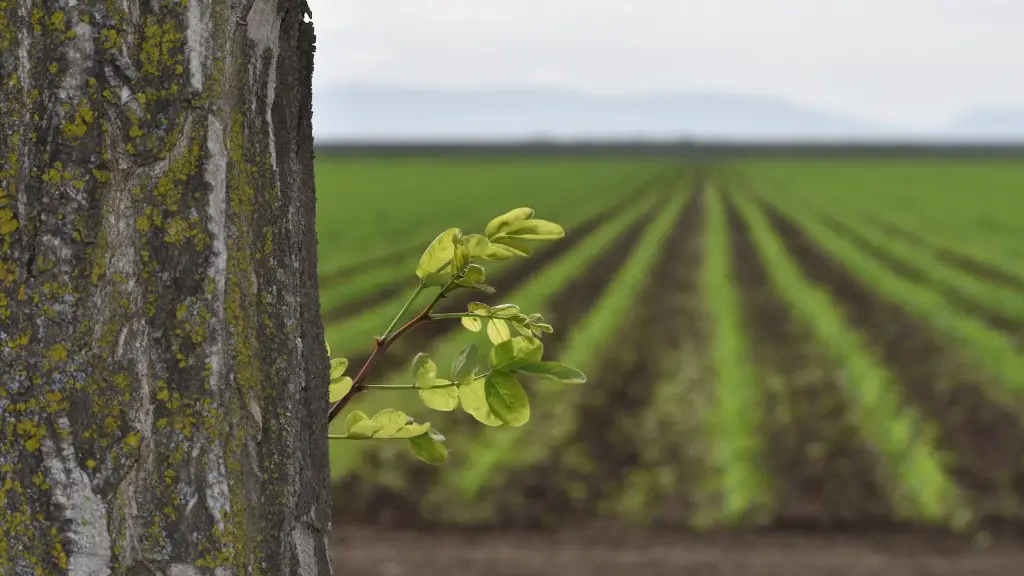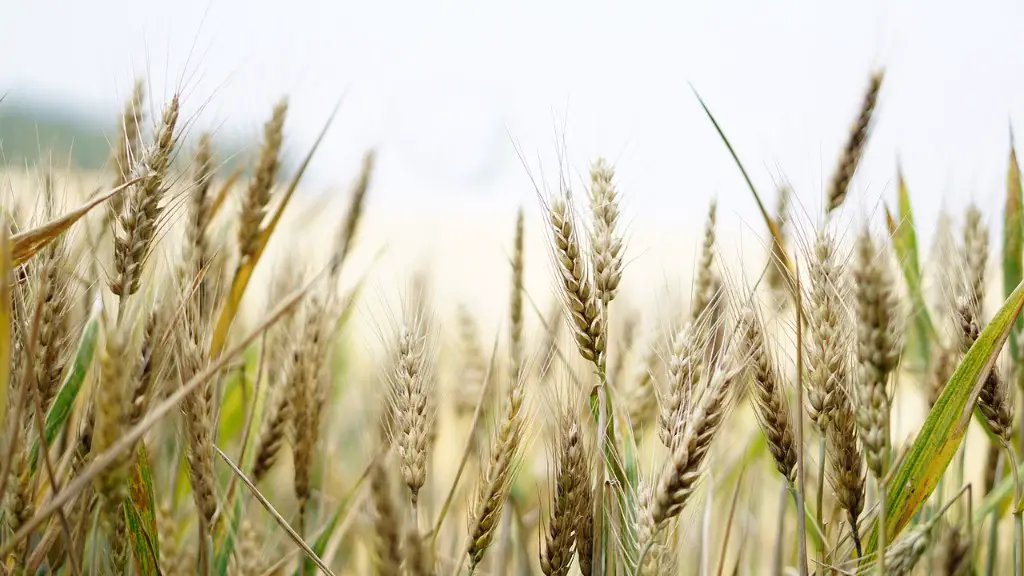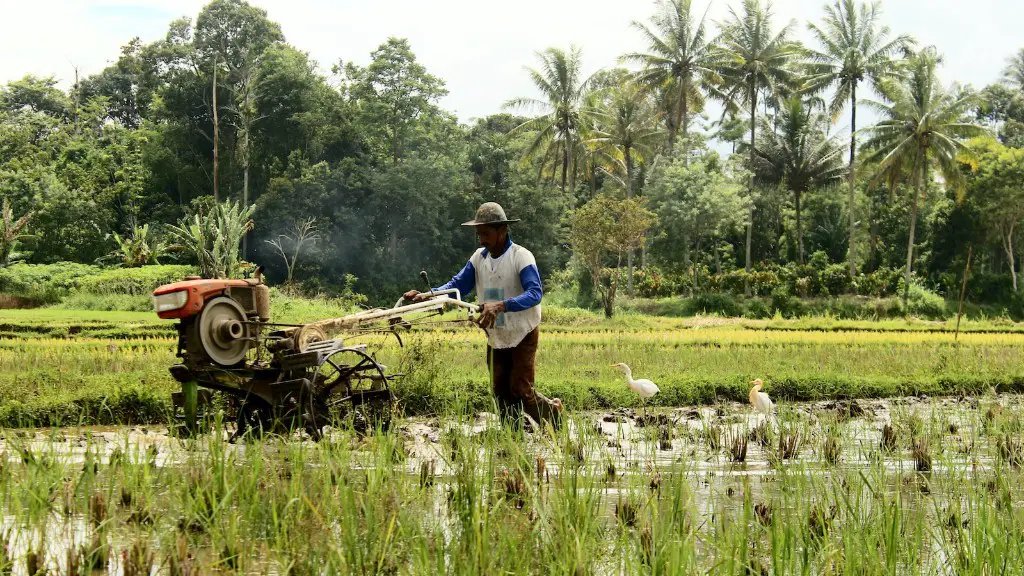The discovery of agriculture is one of the most important events in human history. Agriculture allowed for the domestication of plants and animals, which led to the development of civilizations. Agriculture allowed for the growth of cities and the rise of civilizations. Agriculture allowed for the growth of food surpluses, which allowed for the development of trade and commerce. Agriculture allowed for the growth of populations, which led to the rise of empires.
The discovery of agriculture allowed humans to settle in one place and form civilizations. Agriculture allowed for the domestication of plants and animals, which led to the development of civilizations. Agriculture allowed humans to produce food in large quantities, which led to the development of cities and the rise of civilizations.
What was the importance of the discovery of agriculture?
Farming is one of the most important inventions of humanity. It allowed people to grow all the food they needed in one place, with a much smaller group of people. This led to massive population growth, creating cities and trade.
The Agricultural Extension Act of 1914 was passed in order to set up a system of extension services in the United States. The Act authorized the establishment of the Cooperative Extension Service, which is a joint effort between the federal government and the land-grant universities. The Cooperative Extension Service provides educational programs and services to farmers, ranchers, and other members of the agricultural community.
The Capper-Volstead Act of 1922 gave cooperatives legal status and exempted them from antitrust laws. The Act was a response to the growing power of large corporations in the agricultural industry. The Act allowed farmers to form cooperatives in order to negotiate with corporations on an equal footing.
The Agricultural Adjustment Act of 1933 was passed in response to the severe economic conditions that developed during the Great Depression. The Act provided for the payment of subsidies to farmers who reduced their production in order to stabilize prices.
The Soil Conservation and Domestic Allotment Act of 1936 was passed in order to address the problem of soil erosion and dust storms in the Great Plains region of the United States. The Act provided for the creation of the Soil Conservation Service, which is responsible for carrying out soil conservation programs.
The Rural Electrification Act of 1936 was passed in order to provide
Who was the discovery of agriculture useful for early humans
The discovery of agriculture allowed early humans to stay in one place and to rely on staple foods. This was a major shift from the previous hunting and gathering lifestyle. Agriculture allowed early humans to settle down, to develop more complex societies, and to develop new technologies.
Agriculture plays a vital role in providing the world’s food supply. The majority of the food we eat comes from agricultural crops like wheat, rice, corn, and soybeans. Without agriculture, we would not have enough food to feed the global population.
Agriculture is also important for economic stability. The agriculture industry provides jobs for millions of people around the world. In developing countries, agriculture is often the main source of income.
agriculture is vital for both food security and economic stability. It is important to support the agriculture industry in order to ensure that the world has enough food to eat and that people have jobs to support their families.
How did the discovery of agriculture change the life of humans?
Agriculture has definitely changed the way man lives. In the past, man was a nomad, always on the move, never staying in one place for very long. But with the advent of agriculture, man has settled down in selected areas and has started to grow his own food. This has definitely changed his way of life, making him more sedentary and less of a wanderer.
Agriculture plays a vital role in the Nigerian economy and accounts for a significant portion of the country’s GDP. The sector provides employment for a large percentage of the population and is a major source of foreign exchange earnings. Agriculture also plays a key role in protecting the environment and preserving biodiversity.
What are the 3 most significant events in agriculture?
Cyrus McCormick invented the grain reaper in 1831, which revolutionized farming. The grain combine was patented in 1836, and John Deere began manufacturing plows in 1837. These inventions helped farmers to increase their productivity and efficiency.
As the world’s population continues to grow, the demand for food will put increasing pressure on the land and water resources used for agriculture. This can lead to land degradation, such as soil erosion and salinization, as well as eutrophication. Agriculture is also a significant contributor to greenhouse gas emissions, which are a major contributor to climate change.
How did agriculture influence human settlement
Agriculture allowed people to stay in one place and increased food production. This in turn led to a population density expansion which made it possible for contagious infectious diseases to be sustained and spread.
This period was a time of great change for humans. People, who had been hunters and gatherers before, were starting to become farmers. Farming allowed people to produce more food than they could actually eat. The extra food provided by agriculture meant that some people did not have to spend their time gathering food. This allowed for the development of civilizations and the rise of cities.
What are 5 reasons why agriculture is important?
Agriculture is the main source of raw materials for many industries, including cotton and jute fabric, sugar, tobacco, and edible and non-edible oils. Many other industries, such as fruit and vegetable processing and rice husking, also get their raw materials mainly from agriculture.
The top agricultural products in the world are cow milk, wheat, and corn. Cow milk is the top agricultural product in 37 countries, while wheat is the top agricultural product in 14 countries. Corn is the most produced crop globally with 11 billion tons, followed by wheat with 7609 million tons and rice with 7567 million tons.
What is the most important thing for agriculture
Nowadays, the use of modern machinery in agricultural lands has greatly increased the production of crops. This has in turn led to an increase in the provision of raw materials to industries. This is a very positive development as it helps to ensure that industries have the materials they need to operate smoothly and efficiently.
The agricultural revolution was a period of significant technological advancement in agriculture. It is generally considered to have begun in the late 18th century and continued throughout the 19th century. The agricultural revolution had a variety of consequences for humans. It has been linked to everything from societal inequality—a result of humans’ increased dependence on the land and fears of scarcity—to a decline in nutrition and a rise in infectious diseases contracted from domesticated animals.
Which effect of the development of agriculture was the most significant?
The most significant effect of the development of agriculture was the stabilization of a food supply, because it allowed for communities of people to stay in one spot and build civilizations. Agriculture allowed for the domestication of plants and animals, which led to the growth of cities and civilizations. Agriculture also allowed for the growth of trade and commerce, which led to the development of different cultures and countries.
1. Agriculture is the single largest employer in the world.
2. There are 914 million acres of farmland just in the US.
3. The average US farmer can feed 155 people.
4. Beef farming accounts for 29% of American farms.
5. There are 2.2 million farms in the US.
Conclusion
The discovery of agriculture was one of the most important events in human history. Agriculture allowed for the domestication of plants and animals, which led to the development of civilizations. Agriculture allowed for the growth of cities and the rise of civilizations. Agriculture allowed for the growth of food surpluses, which allowed for the development of trade and commerce. Agriculture also allowed for the development of technology, which led to the Industrial Revolution.
Agriculture is one of the most important discoveries in history. It allowed for the domestication of plants and animals, which led to the development of civilizations. Agriculture allowed for the growth of cities and the rise of civilizations. It allowed for the growth of food surpluses, which allowed for the development of trade and commerce. Agriculture has been a major force in the shaping of human history.





